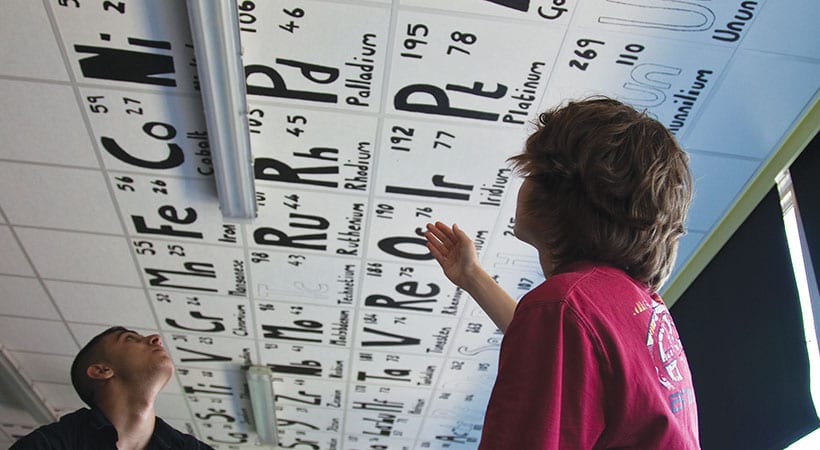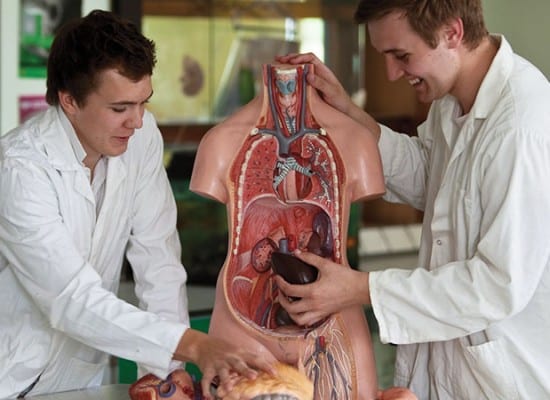What are the entry requirements?
5 GCSEs at A* – C including English and Mathematics (a good Grade B) and at least a grade B in GCSE Chemistry or in Science and in Additional Science.
Course Outline
Module 1: Development of practical skills in chemistry.
Module 2: Foundations of chemistry.
Module 3: Periodic table and energy.
Module 4: Core organic chemistry.
Module 5: Physical chemistry and transition elements.
Module 6: Organic chemistry and analysis.
How will I be assessed?
AS:
Two written exams in June after 1 year of study both papers can assess content from modules 1-4
Paper 1: Breadth in chemistry – 50% weighting. Multiple choice section (20 marks) plus structured questions (50 marks) covering theory and practical skills
Paper 2: Depth in chemistry – 50% weighting. Structured questions and extended response questions, covering theory and practical skills (70 marks)
A2:
Three written exams in June after 2 years of study, and practical endorsment
Paper 1: Periodic table, elements and physical chemistry – 37% weighting. Multiple choice section (15 marks) plus structured questions and extended response questions (85 marks) covering theory from modules 1, 2, 3 and 5
Paper 2: Synthesis and analytical techniques – 37% weighting. Multiple choice section (15 marks) plus structured questions and extended response questions (85 marks) covering theory from modules 1, 2, 4 and 6
Paper 3: Unified chemistry – 26% weighting
Structured questions and extended response questions (70 marks) covering content from modules 1-6
Practical endorsement for chemistry – non exam assessment. Performance is teacher assessed over a minimum of 12 practical skills to demonstrate practical competence. This is reported separately as either a pass or fail.
What will I study?
In year 12 you will develop the ideas covered at KS4 including: atoms and reactions; electrons, bonding and structure; the Periodic Table; alkanes and hydrocarbons; energy and identifying substances. In year 13 you will delve deeper into year 12 work and are introduced to new ideas about rates, equilibrium, pH, electrochemistry, analysis, organic chemistry and transition elements. Mathematics is applied widely during the course.
Practical skills underpin the whole specification and students develop throughout the course. Planning, implementing, analysis and evaluation skills can be assessed within written examinations and (for A level only) within the practical endorsement.
Where can it lead me?
Chemistry is a subject of global impact. As a fundamental science it has a profound effect on our planet and is involved in nearly all facets of everyday life. What’s more, it’s the subject that links the other major sciences of Physics and Biology. The Chemical Industry is of particular importance to the North West. We are fortunate to have major Pharmaceutical, Petro-chemical, Salt-extraction, Polymer and Air Product companies on our doorstep. In the North West there is a thriving research and development aspect to the Chemical Industry as well as a solid manufacturing base.
Possible career and course options available to you include: medicine, pharmacy, veterinary science, chemistry, biochemistry, food science/nutrition, forensic science, biological/engineering careers, optical management, optometry, microbiology, natural sciences, pharmacology, software engineering and physiology, and these all require A level chemistry as essential (unless other qualifications are offered). Careers and courses that find chemistry desirable include food technology, nursing, physiotherapy, radiography, paramedical courses, law and zoology.



